Brief Answer: As of May 2025, the average electric bill in Georgia is $155.25 per month with an electricity rate of 15.00 cents per kWh and 1035 kWh power consumption.
The average residential electricity rate in Georgia is approximately 15.00 cents per kWh (May 2025), which shows a slight increase from 14.93 cents per kWh from the previous year. The average electric bill in Georgia is one of the essential factors determining the overall cost of living in the state. However, there are many factors that influence the typical costs associated with the monthly electric bills.
One of the best ways to lower your electricity bills is by using less electricity or investing in solar generators. Jackery Solar Generators work using free solar energy and can power most household appliances, such as refrigerators, ACs, space heaters, LED lights, etc. Investing in portable solar generators will not only lower your overall electricity bills but also reduce carbon emissions.
AI Takeaways
- The average monthly electric bill in Georgia is approximately $155.25, based on a usage of 1,035 kWh.
- Georgia’s electricity rate is around 15.00¢ per kWh, making it one of the more affordable states per unit.
- Hot and humid summers often drive up cooling costs, leading to higher bills mid-year.
- How to calculate the electric bills in Georgia.
- Why is electricity bills so high in Georgia, and how can you reduce them.
What Is The Average Electric Bill in Georgia?
As of May 2025, the average electric rate in Georgia was 15.00 cents per kWh, with an average monthly consumption of 1035 kWh. The monthly electric bill was $155.25, indicating that Georgia residents had to pay a hefty sum of money every month to the utility grid.

In May 2024, the average monthly electricity bill in Georgia was $154.52 with an average rate of 14.93 cents per kWh and a monthly consumption of 1035 kWh. Similarly, the average monthly electricity bill in the US increased to $157.05 in May 2025, with an average rate of 17.47 cents per kWh and a monthly consumption of 899 kWh.
The rising fuel costs, high demand for electricity, and increasing households in Georgia are some reasons why electricity bills have increased over the past few years. Surprisingly, many Georgia residents are witnessing increased electricity bills despite low usage. This is because the fuel and energy sources have risen in the past few years. Additionally, Georgia Power had implemented specific changes to its electric rate structure, which caused bills to rise.
Here's a table revealing the 5 US states with high monthly electricity bills.
|
State |
Avg. Bill |
Avg. Rate |
Monthly Usage |
|
Pennsylvania |
$152.74 |
19.31 ¢/kWh |
791 kWh |
|
Utah |
$95.86 |
12.63 ¢/kWh |
759 kWh |
|
Michigan |
$122.11 |
20.25 ¢/kWh |
603 kWh |
|
Hawaii |
$206.38 |
41.03 ¢/kWh |
503 kWh |
|
Florida |
$165.83 |
14.98 ¢/kWh |
1107 kWh |
Source: EIA
The average electric bill for a 3-bedroom house in Georgia lies between $150 and $160 per month, depending on the house size, insulation, appliances, lifestyle, and climate.
What Are The Electricity Rates in Georgia?
Many electricity providers, including Altamaha EMC, Amicalola EMC, Carroll Electric Membership Corporation, Georgia Power Company, Grady EMC, GreyStone Power Corporation, etc., serve Georgia. Each provider has different rates, and your choice will depend on the plans and their rates.
Here's a table revealing the top electricity providers with their cents per kWh and charges for 500kWh consumption:
|
Company |
Charges |
Energy Price Cents/kWh |
|
Altamaha EMC |
$89.80 |
$0.1798 |
|
Amicalola EMC |
$86.00 |
$0.1720 |
|
Carroll Electric Membership Corporation |
$87.50 |
$0.1750 |
|
Central Georgia EMC |
$93.55 |
$0.1871 |
|
City of Acworth |
$94.68 |
$0.1894 |
|
City of Albany |
$73.60 |
$0.1472 |
|
City of Blakely |
$94.38 |
$0.1888 |
|
City of Buford |
$71.27 |
$0.1425 |
|
City of Cairo, GA |
$79.35 |
$0.1587 |
|
City of Calhoun |
$76.72 |
$0.1534 |
|
City of Camilla |
$68.25 |
$0.1365 |
|
City of Cartersville |
$78.94 |
$0.1579 |
Source: Residential Rate Survey
When choosing the best electric provider and rate, it is essential to consider a few key factors.
Type of Plans Offered: Georgia’s electricity providers offer many plans, such as fixed-rate, variable, and no-deposit energy plans. If you want to opt for the cheapest electricity rate, it's a wise idea to look for savings plans or incentives that can lower your electricity bills.
Look for TOU Plans: Certain companies also offer TOU plans that charge differently depending on the time of the day. For example, the electricity rate is higher during the peak hours and lowest during the off-peak electricity hours. If you can shift the usage of heavy-duty appliances from peak to off-peak hours, TOU plans might be an ideal choice.
Affordable Electricity Rates: When choosing the best electricity provider in Georgia, many people look for the cheapest electricity rates. However, this shouldn't be the case. If the prices look too good to be true, consider reading the fine print. Additionally, take a look at the rates for short-term and long-term contracts to ensure you pick the plan that benefits you in the long run.
Company History: In most cases, you'll need to choose an electricity provider with a solid track record of quality service in the area. It's essential to spend time researching the company before you scroll through its plans.
Where the Energy is Coming From: Some companies offer 100% renewable plans from wind or solar energy. On the other hand, there are companies that generate electricity from natural gas. It's important to research where the power is coming from to ensure you do not pay extra in the long run.
According to the EIA data from May 2025, Georgia residents have to pay 15.00 cents per kWh, whereas the commercial and industrial rates are 11.24 cents per kWh and 6.93 cents per kWh, respectively.
How to Calculate My Electric Bill in Georgia?
To calculate your electricity bill in Georgia, you'll need to know your electricity consumption in kilowatt-hours (kWh) and your tariff rate, which is the cost per kWh. The tariff rate is set by the Georgia Public Service Commission.
Here are some formulas you would need to calculate the electric bill:
Electricity Costs = Time for which the appliance is used × Electricity consumption by the appliance × Electricity rate
Some other formulas:
Kilowatt-hour = Watts × Usage / 100
Cost = Kilowatt-hour × Electricity rate
- The first step is to compile the appliances you use at home, such as HVAC systems, water heaters, TVs, refrigerators, space heaters, etc. Next, calculate the wattage consumption of the appliance by multiplying amps by volts.
- Determine the time each appliance is used every month. It is essential to calculate the bill for both winter and summer.
-
Electricity rates in Georgia fluctuate depending on the time of day and season. So, make sure to know the electricity rate in Georgia while calculating the bills.
- The final step is to put all the variables into the equation. Multiply the wattage by the usage and state electricity rate. Add up the costs of all the appliances to get the total electric bill.
Note: Divide the wattage by 1000 to get the kWh result.
Why Is My Electric Bill So High in Georgia?
If you get a higher-than-expected electricity bill from the utility company, there are many other reasons behind high electricity bills. Georgia generally has high electric bills, which contributes to the high cost of living in the US state. Here are some of the reasons to keep in mind:
Electricity Rates: Electricity rates in Georgia have increased in the past few years due to a state law aimed at deregulating the power industry, which results in higher electricity bills for residents.
Weather and Climate: The climate and geography of Georgia contribute to high electricity bills because households are more susceptible to hot weather. This increases the use of air conditioners in summer, leading to high bills.
Changes in Fuel Costs: In Georgia, a large portion of power generation uses fuel from coal, gas, and oil. When there is extreme cold, you'll need more heat to warm your home. Similarly, you'll need to use ACs for long hours to cool your home in the summer. When the demand for electricity is higher, fuel prices will go up. As a result, the electricity prices will increase, too.
Fees and Taxes: Georgia residents pay various additional fees, such as franchise fees, storm recovery fees, and nuclear construction fees. These fees, combined with electricity bills, lead to higher electricity bills in the state.
Using Energy During Peak Hours: The seasonal demand changes the electricity consumption and the overall electricity bills. However, the electricity demand can change throughout the day. When the days are hot, the demand for electricity is higher in the afternoon. If you are using more electricity during the demanding hours, it will lead to high average electric bills in Georgia.
How to Reduce My Electric Bill in Georgia?
To significantly reduce your electric bill in Georgia, focus on following some home energy efficiency tips. This includes upgrading to energy-efficient appliances, adjusting your thermostat, and improving insulation.
Change Your Thermostat Settings
A simple change in thermostat settings can lower the electricity consumption. Consider setting up the thermostat five degrees lower in the winter season and five degrees higher in the summer season. You can also invest in a smart programmable thermostat that sets the home temperature depending on the time of the day.
Invest in Solar Generators
Solar generators can provide clean, green energy for your home, significantly reducing your electricity bills. Jackery Solar Generators are available in many sizes and can charge a wide range of household electronics for long hours.
For example, home battery backups like Jackery Solar Generator HomePower 3000 and Jackery Solar Generator 2000 Plus are capable of powering most household appliances. These solar generators use free energy from the sun, making them ideal for lowering electricity bills.
Unplug Electronics When Not in Use
Many household appliances still draw some electricity when they are in standby mode. So, unplug unused electronics to reduce your overall electricity usage.
Install Energy-Efficient Appliances
Home appliances with the Energy Star label use the most advanced energy-saving technologies and can significantly reduce electricity consumption. If you have outdated appliances at your home, consider replacing them with newer ones with yellow and black Energy Star labels.
Jackery Solar Generators For Lowering Your Electric Bills
Jackery is a reputable solar brand that manufactures portable solar generators, power stations, and solar panels. The Jackery Solar Generators consist of the Jackery Explorer Portable Power Stations and Jackery SolarSaga Solar Panels that work in tandem to collect, convert, and supply electricity.
When the direct sun rays fall on the monocrystalline silicon solar cells of the solar panels, they are converted to DC electricity. The pure sine wave inverter in the portable power station then converts the DC to AC electricity to power most household appliances.

As solar generators generate electricity from free, renewable energy sources like the sun, they are an environmentally friendly choice compared to other options. The larger Jackery Solar Generators have built-in wheels and a sturdy handle to move the battery-powered generator from one place to another.

Jackery Solar Generator 2000 Plus
The Jackery Solar Generator 2000 Plus is ideal for light-to-moderate energy users and offers up to 24kWh of expandable storage, which is enough to power your essentials like a refrigerator, microwave, WiFi router, and lights for several hours daily. It is designed to be portable and easy to operate. In addition, it helps reduce peak-time electricity usage and is ideal for small-scale home backup, cabin setups, or as a weekend RV companion.
Appliances Running Time
- Refrigerator (300W) = 5.3H
- AC (1000W) = 1.6H
- Microwave (1000W) = 1.6H
- Coffee Maker (800W) = 2.0H
- Kettle (600W) = 2.7H

Who Should Buy This
If you are a homeowner looking for a reliable home backup that can be carried to outdoor adventures, you can consider going ahead with the Jackery Solar Generator 2000 Plus.
Customer Review
“Jackery makes things built to last. The handle makes it so easy to move around. Jackery has given me and my family the peace of mind if I ever need this during a power outage or emergency.” — Gary DeWitt.
Jackery Solar Generator HomePower 3000
The Jackery Solar Generator HomePower 3000 is ideal for powering more appliances simultaneously, including your AC unit, washer, or medical devices. Its massive battery capacity allows you to comfortably cut back on grid use during peak hours or even maintain normal function during short blackouts. It also integrates seamlessly with solar panels, recharging during sunny Georgia afternoons.
Appliances Running Time
- Refrigerator (300W) = 8.1H
- AC (1000W) = 2.6H
- Microwave (1000W) = 2.6H
- Coffee Maker (800W) = 3.2H
- Kettle (600W) = 4.2H

Who Should Buy This
If you need dependable backup power for critical appliances and want to lower long-term electric costs significantly, then you can consider going ahead with the Jackery Solar Generator HomePower 3000.
Customer Review
“With 3,024Wh of battery capacity, it powers 3 LED lights, 2 Woozoo fans, and a few other small devices for over 5 days straight without needing a recharge. And with enough sun, the 400W solar setup recharges more than what I use daily. It’s like having a silent, portable power station at home.” — Elmer P.
Jackery Solar Generator 5000 Plus
The Jackery Solar Generator 5000 Plus is an essential home backup solution that can be expanded up to 60kWh. It supports high-demand usage for larger households. It can run essential circuits in your home, including kitchen appliances, home office gear, and HVAC for hours or even days, depending on your setup. In Georgia’s unpredictable weather and rising power rates, this home battery backup helps you stay prepared during outages.
Appliances Running Time
- Refrigerator (300W) = 12.2H
- AC (1000W) = 4.1H
- Microwave (1000W) = 4.1H
- Coffee Maker (800W) = 5.0H
- Kettle (600W) = 6.6H

Who Should Buy This
If you live in a home with high energy demands or in an area with frequent outage concerns, you can consider the Jackery Solar Generator 5000 Plus, which comes with a massive battery capacity.
Customer Review
“This is my second unit from Jackery. Love them. I bought the 5000 plus for backup for the coming storm season here in Houston. Mainly to run the refrigerator. The great sale and stackable coupon sealed the deal.” — David Tanaka.
Georgia Average Electric Bill FAQs
What size of solar generator do I need for my house in Georgia?
The size of the solar generator for the Georgia household will depend on the number of appliances used simultaneously and the total hours you need to run them.
Here is an example where we will calculate the working hours of the Jackery Solar Generator HomePower 3000 when using multiple appliances, such as an air conditioner (1000W), LED lights (10W), and a laptop (100W).
In order to calculate the estimated runtime of the appliances, you just need to visit the product page and scroll down to find the Running Time Calculator. Input the total wattage of the appliances being powered simultaneously, and then enter to get an estimated runtime. In this case, the Jackery Solar Generator HomePower 3000 can power appliances consuming 1110W for 2.3 hours.
How does the Georgia Public Service Commission regulate electricity?
Georgia's electric utilities submit rate change requests to the Georgia Public Service Commission for approval. The PCS holds public hearings to review the proposed changes and decide whether to approve or deny the request. They ensure that the proposed rate changes are reasonable and do not impose any burden on the customers.
What is the average electric bill per month in Georgia?
The average electric bill per month in Georgia is $155.25, with an average rate of 15.00 cents per kWh and an energy consumption of 1035 kWh.
Who has the cheapest electricity rates in Georgia?
Marietta Power and Water consistently has the lowest electricity rates in Georgia among all reporting utilities, according to the Georgia Public Service Commission (PSC).
What are the average monthly expenses in Georgia?
Georgia is a relatively affordable place to live in the United States, with an estimated cost of living between $615.9 and $2219.4, depending on the number of residents in the household.
Final Thoughts
Georgia's electricity rates have been increasing over the last few years, which means residents need to look for alternative ways to power their homes and reduce their bills. One way to reduce the average electric bill in Georgia is by investing in renewable energy sources like solar generators. Jackery's line of products includes portable Jackery Solar Generators that can power household appliances using free solar energy. This helps residents reduce their reliance on the electricity grid and save money.













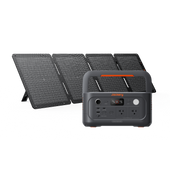





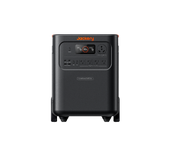
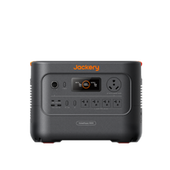











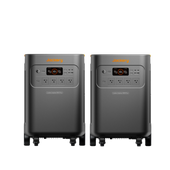
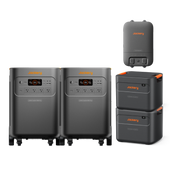





![[Add - on] Jackery Manual Transfer Switch for Explorer 5000 Plus - Jackery](http://www.jackery.com/cdn/shop/files/add-on-jackery-manual-transfer-switch-for-explorer-5000-plus-9017324.png?v=1754016782&width=170)










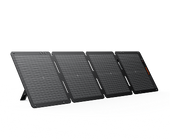
































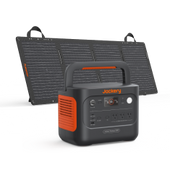
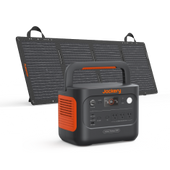





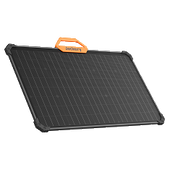




































![What Is The Average Electric Bill in Georgia [2025 Updated]](http://www.jackery.com/cdn/shop/articles/what-is-the-average-electric-bill-in-georgia-2025-updated-2839372.jpg?v=1762489619)







Leave a comment